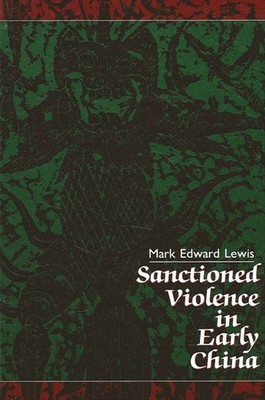
- We will send in 10–14 business days.
- Author: Mark Edward Lewis
- Publisher: State University of New York Press
- ISBN-10: 0791400778
- ISBN-13: 9780791400777
- Format: 15.5 x 23.3 x 2.5 cm, minkšti viršeliai
- Language: English
- SAVE -10% with code: EXTRA
Reviews
Description
This book provides new insight into the creation of the Chinese empire by examining the changing forms of permitted violence--warfare, hunting, sacrifice, punishments, and vengeance. It analyzes the interlinked evolution of these violent practices to reveal changes in the nature of political authority, in the basic units of social organization, and in the fundamental commitments of the ruling elite. The work offers a new interpretation of the changes that underlay the transformation of the Chinese polity from a league of city states dominated by aristocratic lineages to a unified, territorial state controlled by a supreme autocrat and his agents. In addition, it shows how a new pattern of violence was rationalized and how the Chinese of the period incorporated their ideas about violence into the myths and proto-scientific theories that provided historical and natural prototypes for the imperial state.
EXTRA 10 % discount with code: EXTRA
The promotion ends in 23d.12:54:53
The discount code is valid when purchasing from 10 €. Discounts do not stack.
- Author: Mark Edward Lewis
- Publisher: State University of New York Press
- ISBN-10: 0791400778
- ISBN-13: 9780791400777
- Format: 15.5 x 23.3 x 2.5 cm, minkšti viršeliai
- Language: English English
This book provides new insight into the creation of the Chinese empire by examining the changing forms of permitted violence--warfare, hunting, sacrifice, punishments, and vengeance. It analyzes the interlinked evolution of these violent practices to reveal changes in the nature of political authority, in the basic units of social organization, and in the fundamental commitments of the ruling elite. The work offers a new interpretation of the changes that underlay the transformation of the Chinese polity from a league of city states dominated by aristocratic lineages to a unified, territorial state controlled by a supreme autocrat and his agents. In addition, it shows how a new pattern of violence was rationalized and how the Chinese of the period incorporated their ideas about violence into the myths and proto-scientific theories that provided historical and natural prototypes for the imperial state.


Reviews